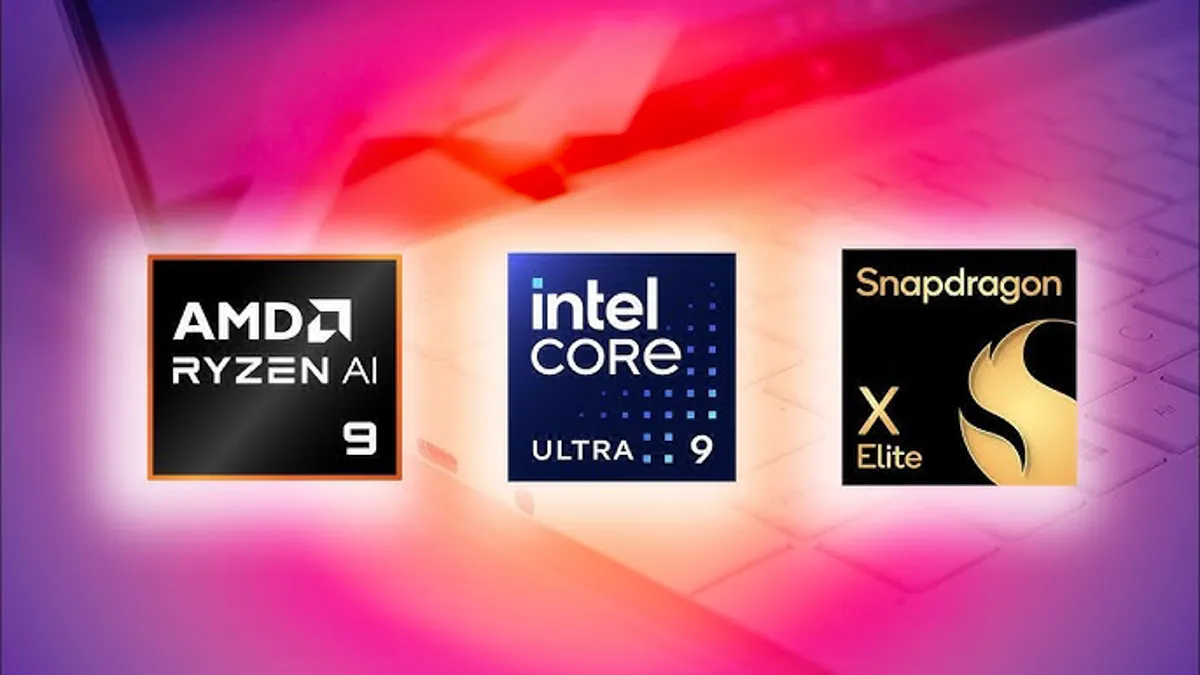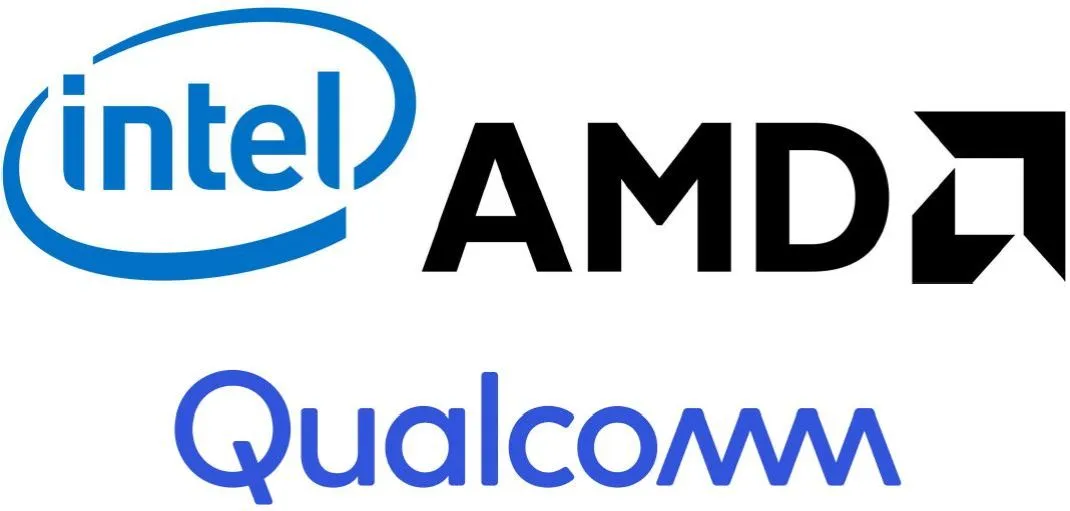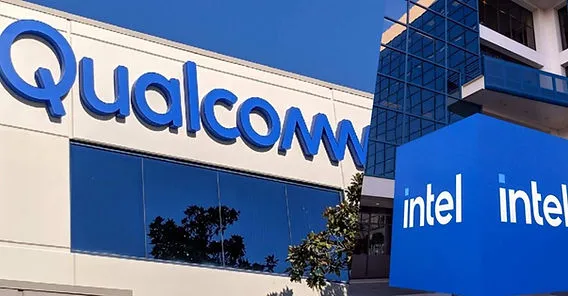AMD Aims to Block Qualcomm’s Potential Acquisition of Intel: The Battle for Chip Industry Dominance
In a bold move that could reshape the global chip market, AMD (Advanced Micro Devices) has reportedly taken steps to prevent Qualcomm from acquiring Intel, a transaction that could have major implications for the semiconductor industry. This latest development in the ongoing battle for control in the high-stakes chip manufacturing world hints at a larger strategy by AMD to solidify its position as a dominant player in the market.

The chip industry is one of the most critical sectors in the modern technological landscape, with companies like Intel, AMD, Qualcomm, and others battling to supply everything from consumer electronics and mobile devices to data centers and artificial intelligence systems. As demand for semiconductors continues to surge, industry giants are jockeying for position, seeking to leverage acquisitions to bolster their technological capabilities and expand their market reach.
Qualcomm, traditionally known for its dominance in mobile chips, has made clear its ambitions to extend its influence in the semiconductor space. The company has reportedly been eyeing Intel, one of the largest and most established chipmakers in the world, as a potential acquisition target. Intel, which has faced increasing competition in recent years from AMD and other rivals, would be a valuable addition to Qualcomm’s portfolio. The acquisition would allow Qualcomm to leverage Intel’s expertise in PC processors, data center solutions, and networking technology, further solidifying its place as a major player in the broader chip market.

Intel’s diverse business operations, which include manufacturing microprocessors for computers, servers, and embedded systems, would provide Qualcomm with a strong foundation to expand beyond its current focus on mobile chips. Furthermore, combining Intel’s extensive patent portfolio and manufacturing capabilities with Qualcomm’s leadership in wireless technology could create a powerful synergy that would position the combined company as a serious contender for global dominance in the semiconductor space.
However, this potential acquisition is not without its challenges, especially as competitors like AMD are deeply concerned about the implications of such a merger.
AMD, which has seen significant success in recent years due to its advancements in processor technology, has emerged as one of Intel’s primary competitors. The company’s Ryzen and EPYC processors have been gaining market share, particularly in the PC and data center sectors, where Intel has long been the dominant force. AMD’s competitive edge has been driven by its ability to produce high-performance, energy-efficient processors at competitive price points, making it a formidable challenger to Intel’s traditional supremacy.

From AMD’s perspective, the prospect of Qualcomm acquiring Intel could significantly disrupt the current balance of power in the semiconductor industry. With Intel under Qualcomm’s control, the combined company could potentially outpace AMD in terms of research and development capabilities, manufacturing scale, and market influence. AMD fears that such a merger would make it even more difficult for the company to compete effectively, particularly as Qualcomm could leverage Intel’s vast resources to launch aggressive pricing strategies or monopolize key technology markets.
Additionally, there are concerns within AMD that Qualcomm’s acquisition of Intel could stifle innovation and reduce competition in the semiconductor industry. A larger, more powerful Qualcomm-Intel conglomerate would have the ability to dominate key chip markets, potentially leading to higher prices for consumers and fewer options for manufacturers. With both Intel and Qualcomm possessing vast portfolios of intellectual property, a merger could consolidate the power of the two companies, making it more difficult for smaller players like AMD to break into new markets or develop competing technologies.
The semiconductor industry is undergoing a period of rapid consolidation, as companies vie for control over the critical infrastructure that powers everything from smartphones and computers to the burgeoning fields of AI, 5G, and autonomous vehicles. The recent surge in demand for chips, driven by the growth of cloud computing, machine learning, and the Internet of Things (IoT), has intensified competition among chipmakers. At the same time, geopolitical tensions and supply chain disruptions have only added to the sense of urgency, prompting companies to explore strategic acquisitions to safeguard their future.

For AMD, preventing Qualcomm from acquiring Intel represents a crucial move to protect its market position and maintain the competitive balance in the semiconductor space. If Qualcomm were to succeed in acquiring Intel, it could dramatically reshape the global chip industry, leaving AMD with fewer opportunities to challenge the new conglomerate’s dominance.
As AMD takes action to prevent Qualcomm from acquiring Intel, the future of the semiconductor industry appears to be at a crossroads. If the acquisition goes through, it could lead to a reshuffling of market leadership, with Qualcomm and Intel emerging as an even more formidable force. On the other hand, if AMD succeeds in blocking the deal, the current dynamics in the chip industry could remain relatively stable, with each company continuing to compete for market share and technological innovation.

The outcome of this battle will likely have far-reaching implications not only for AMD, Qualcomm, and Intel but for the entire tech ecosystem. As the demand for semiconductors continues to grow, the strategic decisions made by these companies will shape the future of the global technology industry. For now, AMD’s efforts to prevent Qualcomm from acquiring Intel underscore the high stakes involved in the ongoing struggle for dominance in the semiconductor market.
In the coming months, regulators, investors, and industry watchers will closely monitor this developing situation. Whether through legal challenges, strategic partnerships, or new innovations, the battle for chip industry supremacy is far from over. The ultimate question remains: who will come out on top in the race to dominate the world’s chip market?
News
NEWS: Elon Musk vs. Taylor Swift and Imane Khelif….
Elon Musk vs. Taylor Swift and Imane Khelif: A power play reshaping the digital landscape. Who’s next? In a dramatic turn of events, Elon Musk has once again demonstrated the immense influence he wields over the digital world, sparking chaos…
NEWS: Primanti Bros Shuts Down Franchises….
Primanti Bros Shuts Down Franchises in Red States, Declares “That’s Not the America We Stand For” Primanti Bros, the well-known Pittsburgh-based sandwich chain, has made a controversial decision to close all of its franchises in red states, citing that “That’s…
NEWS: NFL’s Travis Kelce Announces He’s Leaving…
NFL’s Travis Kelce Announces He’s Leaving Elon Musk’s ‘Hate Machine’ X App, Calling It a ‘Toxic Waste Dump’ After Scathing and Hurtful Comments About… In a dramatic turn of events, NFL star Travis Kelce has announced his departure from Elon…
NEWS: ‘Wicked’ Co-Stars Ariana Grande and Cynthia….
EXCLUSIVE: ‘Wicked’ Co-Stars Ariana Grande and Cynthia Erivo’s Cringey Public Lovefests Branded a ‘Sham’ to Cover Up ‘Behind-Scenes Hatred’ The public lovefest between Ariana Grande and Cynthia Erivo is a Wicked lie. That’s the dirt being dished by industry insiders, who said the on-set tension between…
NEWS: Sylvester Stallone is served by a black waitress….
Black Waitress Serves Sylvester Stallone, Saw Note on Check, and Burst into Tears Reba McEntire in Roberto Cavalli, Lainey Wilson in Area Suit & More ACM Awards 2024 Red Carpet Arrivals, Live Updates Country’s biggest stars gathered on the 2024 Academy…
NEWS: Steph Curry, 36, FINALLY VERIFIES THE STORIES….
At 36, Steph Curry FINALLY Confirms The Rumors Steph Curry Addresses When His NBA Career Could Be Over Steph Curry and the Golden State Warriors will host LeBron James and the Los Angeles Lakers on Christmas in what will…
End of content
No more pages to load











